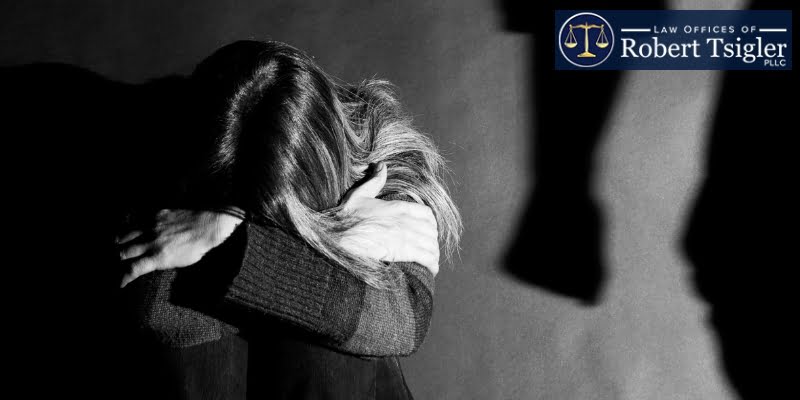NYC
Domestic Violence
Lawyer
New York Domestic Violence Defense Attorney
In the state of New York, family and criminal courts hold concurrent jurisdiction over “family offenses” such as assault, sexual abuse, and stalking. This means that charges may be filed in either court and in some cases, both. It is possible for civil charges to be levied in family court while criminal charges are pursued in front of a criminal judge.
In domestic violence cases, it is not uncommon for victims to apply for orders of protection which are designed to limit or prevent defendants who have been charged from making contact with spouses or children who may reside at the location where the pending case occurred.

The Scope of Domestic Violence Charges
There are many unique charges which can be encompassed within a domestic violence case. In the state of New York, domestic violence is a descriptive term rather than a specific crime carrying sentencing guidelines in and of itself. Domestic violence may be the result of an assault, sexual assault, menacing, stalking, strangulation, or other charge involving people engaged with a current or previous domestic relationship.
This term describes crimes which occur between:
- Individuals who are related or who share an affinity due to housing
- Individuals who are married or involved with a domestic partnership
- Individuals who were formerly married or involved with a domestic partnership
- Individuals who have had a child together
- Individuals who were formerly involved with an intimate relationship together
In the state of New York, domestic violence charges are considered very serious offenses and it is essential to secure the legal representation of a knowledgeable New York criminal defense lawyer who will fight to protect your rights.
Defenses Against a Domestic Violence Charge
Below are some common defenses for a domestic violence accusation. These defense strategies are by no means an exhaustive list, but can help you understand how to defend yourself. It’s critical you hire an attorney who knows how to present these defenses and create a strategy to win your domestic violence case.
Lack of Proof: If there’s no proof, then it make your attorney’s job easier. Defendants cannot be convicted if the prosecution is unable to reach the required burden of proof in a domestic violence case. Legal professionals who have been trained in examining cases know how to uncover holes/contradictions in the prosecutor’s argument. In your risk free consultation with our NYC domestic violence attorney – we can help you understand what level of proof is levied against you.
Wrong Suspect: If you can demonstrate that you aren’t the person who has committed the offense – then this is another great defense. You may be able to prove this by having an alibi that you were somewhere else during the time of the physical infraction. You can have witnesses testify on your behalf that you were with them, and not with the alleged victim. If you have photos or video footage that was time stamped, this can help support your case.
Intentional False Accusation: Sometimes a defendant is wrongfully accused for reasons that have nothing to do with actual violence. This is typical in divorce cases where a spouse falsely claims there was abuse, in order to gain more money, gain custody, or fulfill some vendetta. The way to defend yourself is by finding inconsistencies in the opponent’s story, having an alibi, etc. In situations like this, it’s critical you hire an NYC domestic violence lawyer who can help you.
Self-defense: With this strategy you have to prove your actions were done out of self-protection. For instance, if someone was striking you, and you had to strike back to protect yourself – then this is an act of protection. It is harder to plea self-defense, if you elicited the aggression towards you, i.e. through verbal threats, or hostile hand actions. If you incite someone by calling him/her names, or doing other physical maneuvers, such as threatening to harm them, then you have implicitly taken the role of an aggressor in the fight, and thus have invited harm towards you. This type of case can be difficult to defend if you incited the violence unto you.

New York City
Practice Areas
Latest Result
Dismissed
Case Results
DISMISSED
Client charged with domestic violence assault on her husband. Case Dismissed.
DISMISSED
Client was charged with domestic violence menacing and criminal possession of a weapon for threatening his spouse with a weapon. Case Dismissed.
As domestic violence cases rise, the amount of false accusations do too. Males are usually the targets of false allegations from significant others. It’s hard to say why an accuser would falsely accuse you. There can be numerous motivations, such as doing it out of spite, desire for monetary reward in a divorce settlement, receiving full custody of a child, or more.
Regardless of why you are being falsely accused, our NYC domestic violence attorneys can help. We have a great track record when it comes to DV cases, and can help highlight any contradictions in the prosecution’s case as evidence of a false accusation.
In New York, both the family courts and the criminal courts have concurrent jurisdiction over domestic violence cases. Those offenses are broken down into four basic sections in the New York Penal Code. Those are assault in Sections 120-120.12, menacing in Sections 120.13 to 120.15, stalking in Sections 120-145-160 and strangulation in Sections 121.11 to 121.14.
The New York Unified Court System uses a broad generic definition for what constitutes domestic violence. It consists of a an instance or pattern of coercive behavior that might include physical, sexual, psychological, economic and emotional behavior by one person against an adult or child family member or intimate partner coupled with the goal of establishing and maintaining power and control over the victim. The alleged victim need not be a present or past intimate partner of the accused either. The courts also recognize the rights of family members and roommates sharing a residence.
If a police officer responds to a call and has a reasonable belief that either felony or misdemeanor domestic violence has occurred, New York requires the immediate arrest of the suspect. Along with potential incarceration, such a conviction can impact any professional licenses that a person might have. Individuals who are conditional or permanent residents of the United States should be aware of the fact that a domestic violence conviction can also impact their ability to remain in the country.
A person commits an assault when he or she causes physical harm to another person. The intent to commit physical harm or injury isn’t an element of the offense. For example, hitting a spouse, intimate partner, a child or other family member constitutes a domestic assault. There are different levels of assault ranging from misdemeanors to felonies.
The crime of menacing involves threatening a person with physical harm so that the victim is in fear of actual physical injury. It consists of the threat and resulting reasonable fear of an actual physical assault. The threat must be accompanied by a physical act, and the intended victim is required to be aware of the threat.
If you follow a boyfriend, girlfriend, ex-boyfriend, ex-girlfriend or present or former intimate partner around, or you communicate with that individual in a manner that triggers their reasonable fear for their own safety, you’ve committed the crime of stalking. There are four degrees of the crime. Stalking in the first degree is a felony.
If one individual grabs another person by the neck, he or she can be charged with strangulation. The crime involves interfering with the breathing or blood circulation of another person. Second degree strangulation occurs when interference with breathing or blood circulation causes the victim to become faint, lose consciousness or suffer a physical injury. First degree strangulation is charged if the victim suffers a serious injury.
If you’re charged with a crime of domestic violence in New York, one of the first steps that a court will take will be the issuance of an order of protection in favor of the alleged victim and against you. The purpose of such an order is to protect the alleged victim from further threats, harassment, intimidation or physical harm. The protection authorized by such an order can be broad. It might provide for no direct or indirect communication with the victim or other protected persons, remaining a certain distance from him or her, moving out of any shared residence with the victim or even surrendering any firearms that you might possess.
If you’ve been taken into custody on allegations of domestic violence in any of New York’s boroughs, don’t give a statement or confession of any kind. They’ll only be used against you. Immediately invoke your right to an attorney. Contact the Law Offices of Robert Tsigler, PLLC at (718) 878-3781 to arrange for a consultation and case review. There are two sides to every domestic violence case, and we’ll listen to your side of the story carefully. After that, we’ll answer your questions and advise you of your complete range of legal choices. Call us right away after any domestic violence arrest.
The Domestic Violence Law firm of Robert Tsigler, PLLC is Ready to Fight for You!
DON'T
DELAY
discuss your case right away.
Schedule A Consult
"*" indicates required fields
















